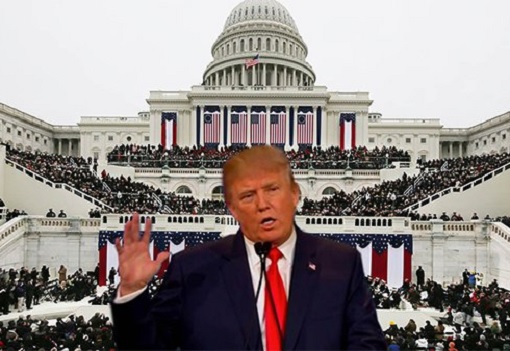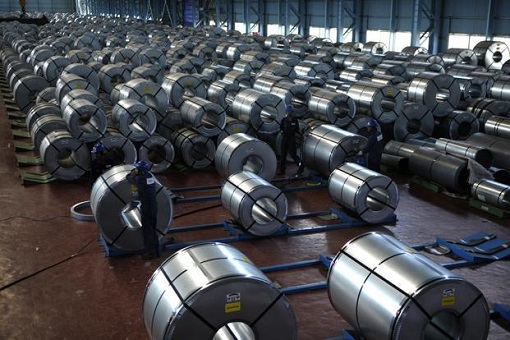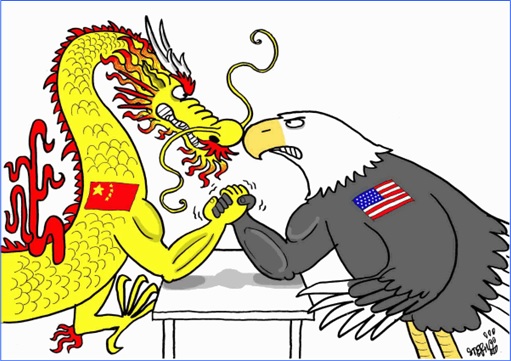With hours away before the inauguration to install the 45th President of the United States, the entire Asia-Pacific is almost on standstill. As thousands of anti-Trump protesters hitting the street, hoping that their action could miraculously stop the ceremony, CNN was criticized for suggesting Donald Trump and his vice president could be stopped if they’re killed.
Trump is easily the only U.S. President-elect who receives the highest report of death threats. Even a family friend of Hillary Clinton was arrested after he threatened to assassinate Trump at the inauguration. But an assassination of Trump at this hour is the last thing on the mind of Asia-Pacific. They’ve better things to worry about – trade war.

In a final note released by Goldman Sachs before Trump is officially known as President Trump, the investment bank has issued a final warning that if the new U.S. president follows through on his promises; North Asia will be hit the hardest. Goldman predicts that U.S. import cuts would reduce economic activity in Asia about 2.6 times the extent of the cuts.
“The likelihood of no action on trade seems low given the consistent message during the campaign, the policy platform on the President-elect’s webpage, and the hawkish orientation of the officials who have been nominated to trade-related positions in the incoming administration,” wrote the analysts.

The note said while China has the highest production multiplier (at three times), two other Asia nations – Taiwan and South Korea – would have the most negative economic impact due to their greater reliance on trade. This means a U.S. import cut of 1% of GDP (about 7% of U.S. imports) could cause output losses of nearly 1% of GDP for Taiwan and South Korea and 0.6% of GDP for China.
However, a 5% drop in U.S. imports could lead to an 8% decline in the regional MSCI AC Asia Pacific excluding Japan Index. Here’re the countries with largest trade deficit with the United States – China (trade deficit of US$367 billion in 2015) follows by European Union, Japan, Mexico and South Korea.

In the case of China, Trump administration could immediately slap a 45% tariff on steel and chemicals dumped by China on American soil. Other primary products contributed to the mind-boggling trade deficit include computers, electrical equipment and apparel. Therefore, these 3 sectors are most likely to be affected if Trump thinks more China products should be punished too.
The trade deficit in transportation (motor vehicles) is mainly with Mexico, Japan and EU. Hence the threats of 35% tax on American carmakers Ford and General Motors, Japan carmaker Toyota, and German carmakers BMW, Mercedes-Benz, Volkswagen, Audi and Porsche. German automakers sold approximately 1.3 million vehicles in the U.S. last year.

In oil, gas and minerals sectors, the U.S. registers trade deficits with Canada and the Middle East. But this doesn’t mean other countries in Asia are not entirely affected by Trump’s potentially trade war with China, Mexico and Germany. While Goldman Sachs economist has no official figures of impact, the spill-over effect from a U.S.-China trade war is equally damaging.
The reason – while the finished goods are assembled in and exported from China, some intermediate inputs are sourced from other countries. Approximately 40% of Taiwan, Malaysia and Korea exports to China are processed for re-exports. Therefore, it’s foolish to claim a 45% tariff on imports from China will not affect the supply chain exports in those countries.

Sure, China can scream, whine and bitch that they’re not the currency manipulator as accused by Trump. That will not change the fact the trade deficit is extremely unhealthy to the U.S. Unless China plans to go on a brutal Beijing-Washington trade war, it needs to open itself more to foreign investment.
Other Articles That May Interest You …
- China Is Terrified – Trump Has The Power & Ability To Screw Its Economy
- These 8 Men Are As Rich As 3.6-Billion People, Or Half The World
- Beijing Sends Jack Ma To Befriends Donald Trump, Offering 1-Million Jobs
- Mexico Panics!! Peso Goes Haywire As Ford Abandons Mexicans, Others May Follow
- After Air Force One, Now Trump Attacks Lockheed’s Overpriced F-35 Stealth Fighter
- Documents Prove “New Air Force One” Overpriced – Trump Was Right … Again
- Apprentice Drama – News Media Invited To A Boardroom Meeting, “Fired” By Trump
- BREXIT 2.0!! – Here’re 12 Major Reasons Trump Wins Presidency, Against All Odds
- A Powerful & Vengeful President Trump – ISIS & Radical Muslims Are In Grave Trouble
- 10 Business Philosophy Billionaire Trump Disagreed With Billionaire Buffett

|
|
January 20th, 2017 by financetwitter
|


|

|

|

|

|

|




























Comments
Add your comment now.
Leave a Reply